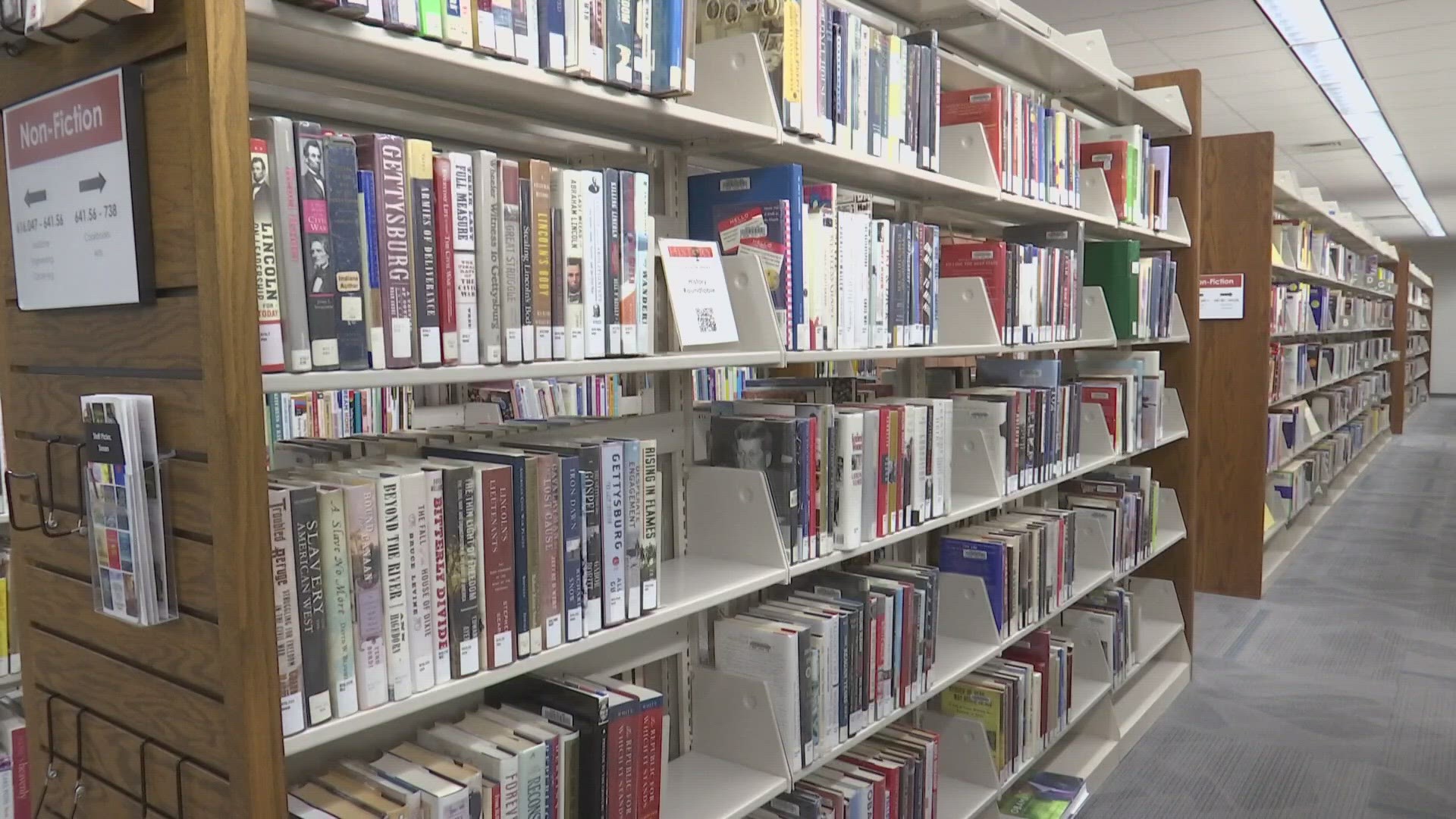INDIANAPOLIS — A bill now headed to Governor Eric Holcomb's desk could impact which books your child can access at school.
What kids can and cannot read in class is once again a point of contention at the Statehouse after Senate Bill 12 was essentially revived. The language allowing books to be removed from school libraries was moved right into another bill, House Bill 1447, that's now passed by lawmakers and on its way to the governor's desk.
Sen. Andrea Hunley, D-District 46, has spent 20 years working in public education, including as a teacher and principal. She said this quick switch is frustrating.
"It's problematic to me that this is the way we're going to amend legislation – at the last minute in really substantial ways without getting input from the public," Hunley said.
The bill would allow a community member or a parent to go to their school board and ask that a book be removed from the school library if they believe it's obscene or harmful.
A school board would review each request at a public meeting and decide if the book should be taken off the library shelf. And even if school officials do decide to keep the book, parents can appeal the decision.
Schools will also be required to publish on their website a catalogue of all material in their library.
The proposed law allows for a local prosecutor to bring criminal charges against a school librarian or teacher if they refuse to remove a book that's determined to be obscene. This law would take away the education defense for a librarian or teacher that they were offering the book to kids in the name of education.
Nicole Cooper, an English language arts teacher at Harshman Middle School, said that's concerning.
"Those are the same books that teach lessons that yes, are a part of history that are terrible, that are uncomfortable, that could be considered controversial. But what happens when we take that away from a group of kids, our new generation who will be making the laws, who will be running the country, who will be making decisions? It's not fair," Cooper said.
In her 20 years of teaching, Cooper said she's never seen a book come up in the classroom that would qualify as obscene or harmful. But, she said, she doesn't believe parents should get to decide what's right and what's wrong for an entire class or school just because they don't like it.
“I don’t think it’s the place of a school library or even a parent to say, I don’t want my child to read this but I also don’t want your child to read that either. I just don’t think that’s fair,” Cooper said.
She stressed even when some lessons challenge your ideas, your background and share history that might make us comfortable, it can help children to think critically, expand their knowledge and grow. She's seen the need for it firsthand in reading books like "Animal Farm" and "Code Talkers" with her students.
“We are reading 'Code Talkers' that speaks about the Navajo erasure out of history and how in WWII, they’d got rid of them, but needed them back because of their language. But no one wants to mention how boarding schools took away their culture and essentially said being Navajo is a problem, but we want you to be white," Cooper said. "Yes, that’s hard, I understand that. Yet if we don’t know about it, what happens if someone tries to repeat that? If someone tries to say, your culture isn’t okay, your lifestyle is not alright, let’s erase that. I think we’re putting ourselves in a precarious situation."
Rep. Martin Carbaugh, R-District 81, said, in the end, voters will decide who's right.
"I trust our local school boards to get it right and if enough in the community think our local school boards don't get it right, we've got elections," Carbaugh said.
"I hope the governor sees this bill for what it is -- unnecessary," Hunley said. "We already have procedures in criminal code that address this very issue. I hope we will not see the governor signing this piece of legislation into law."

